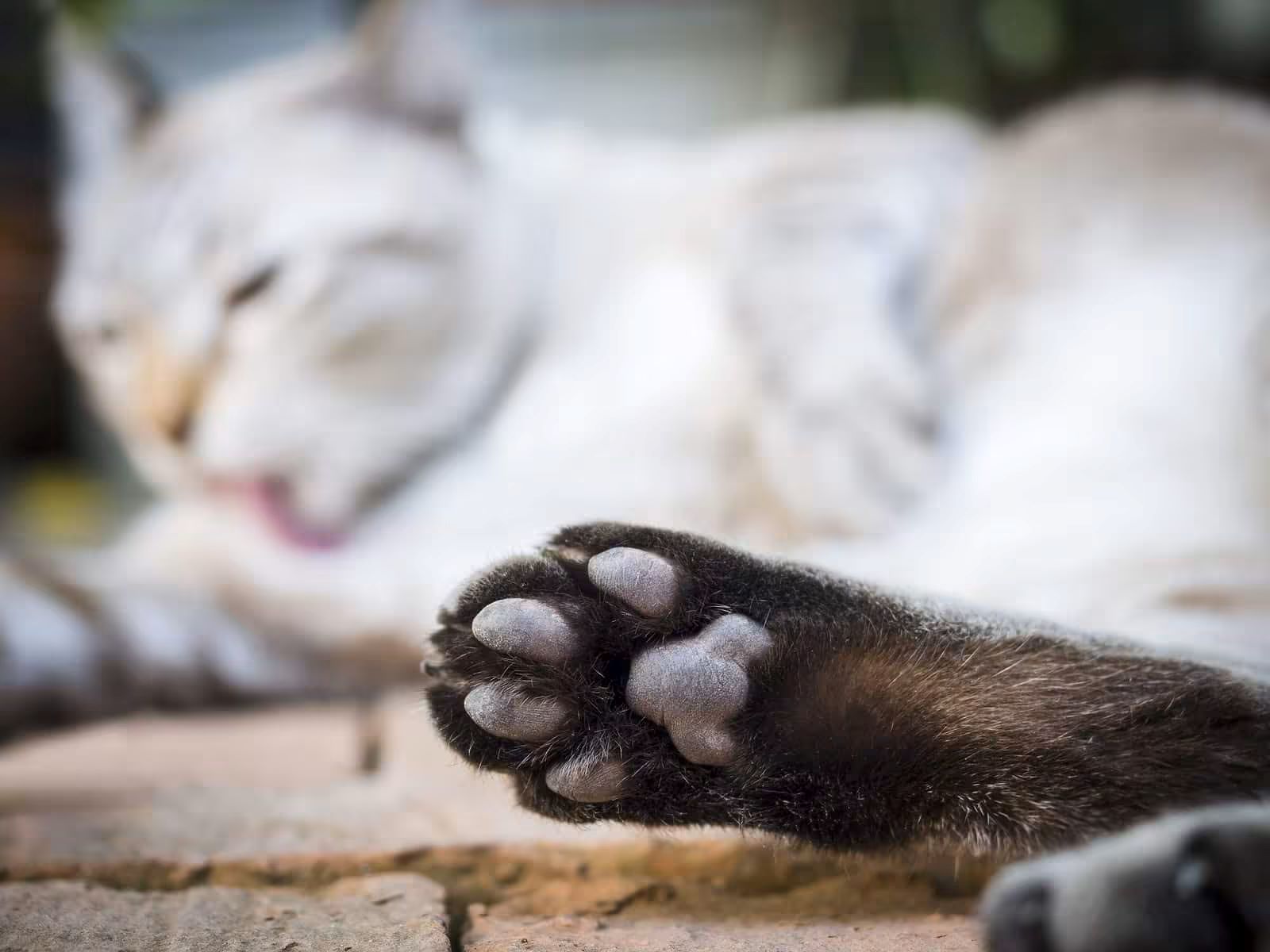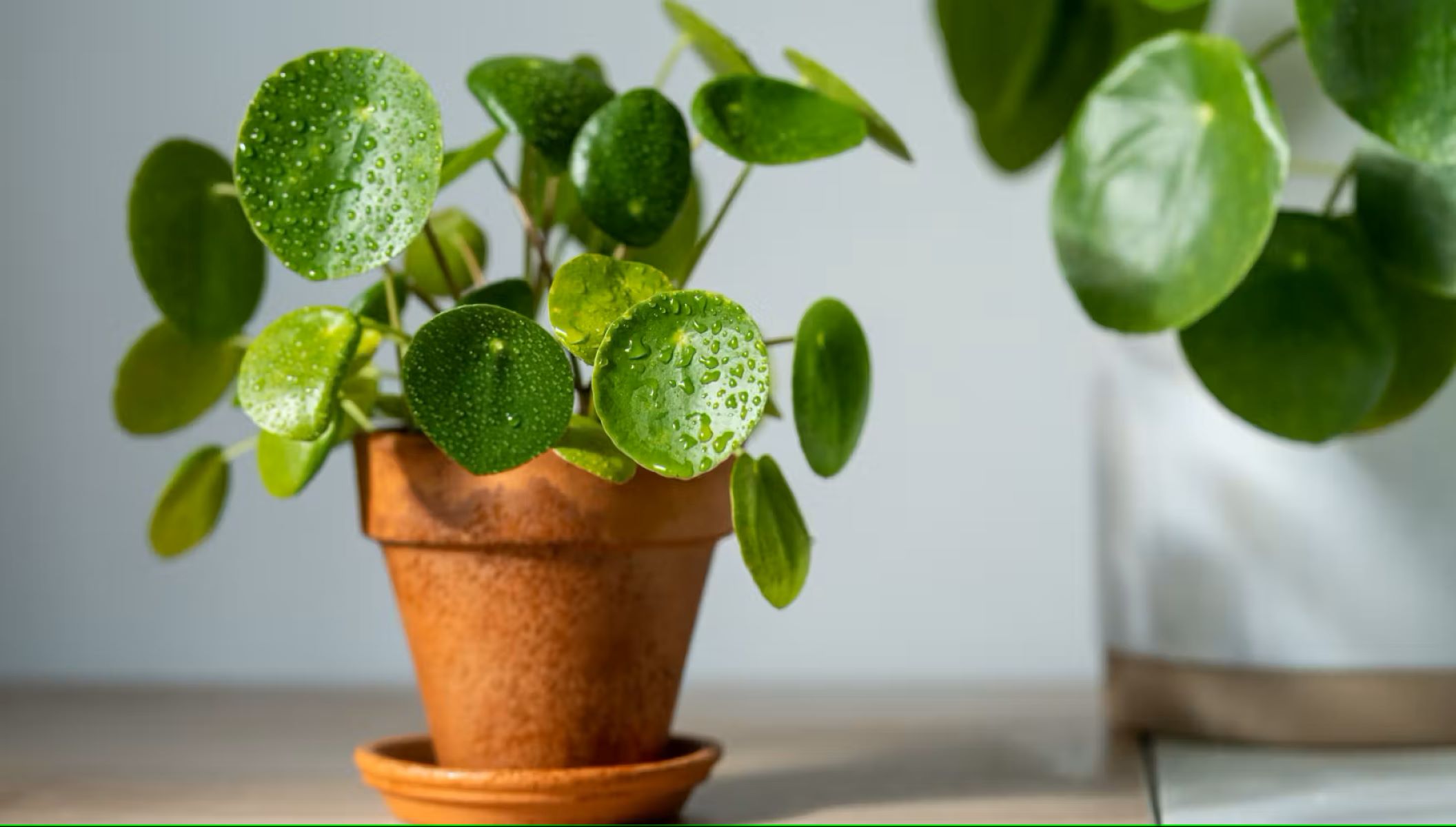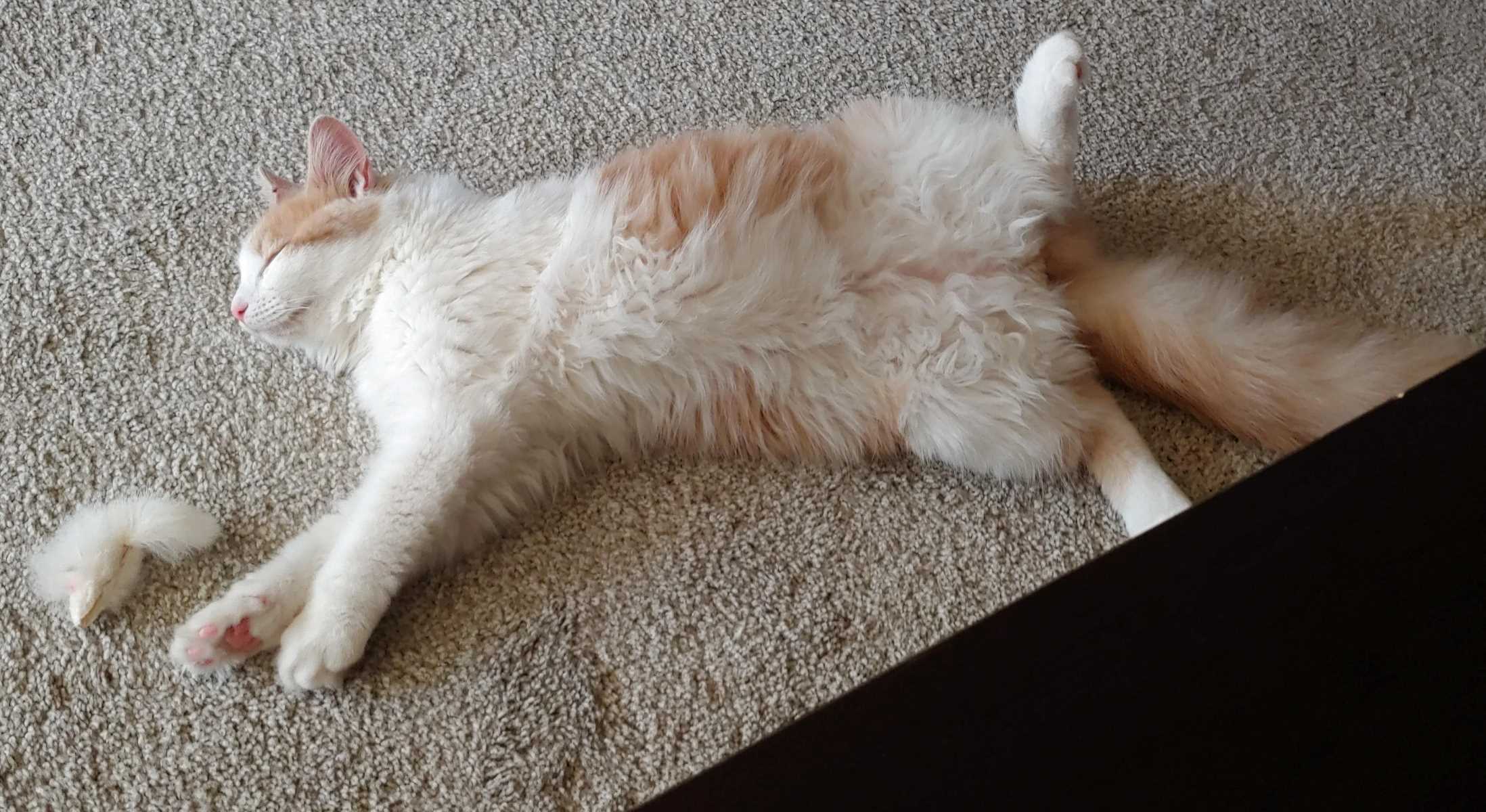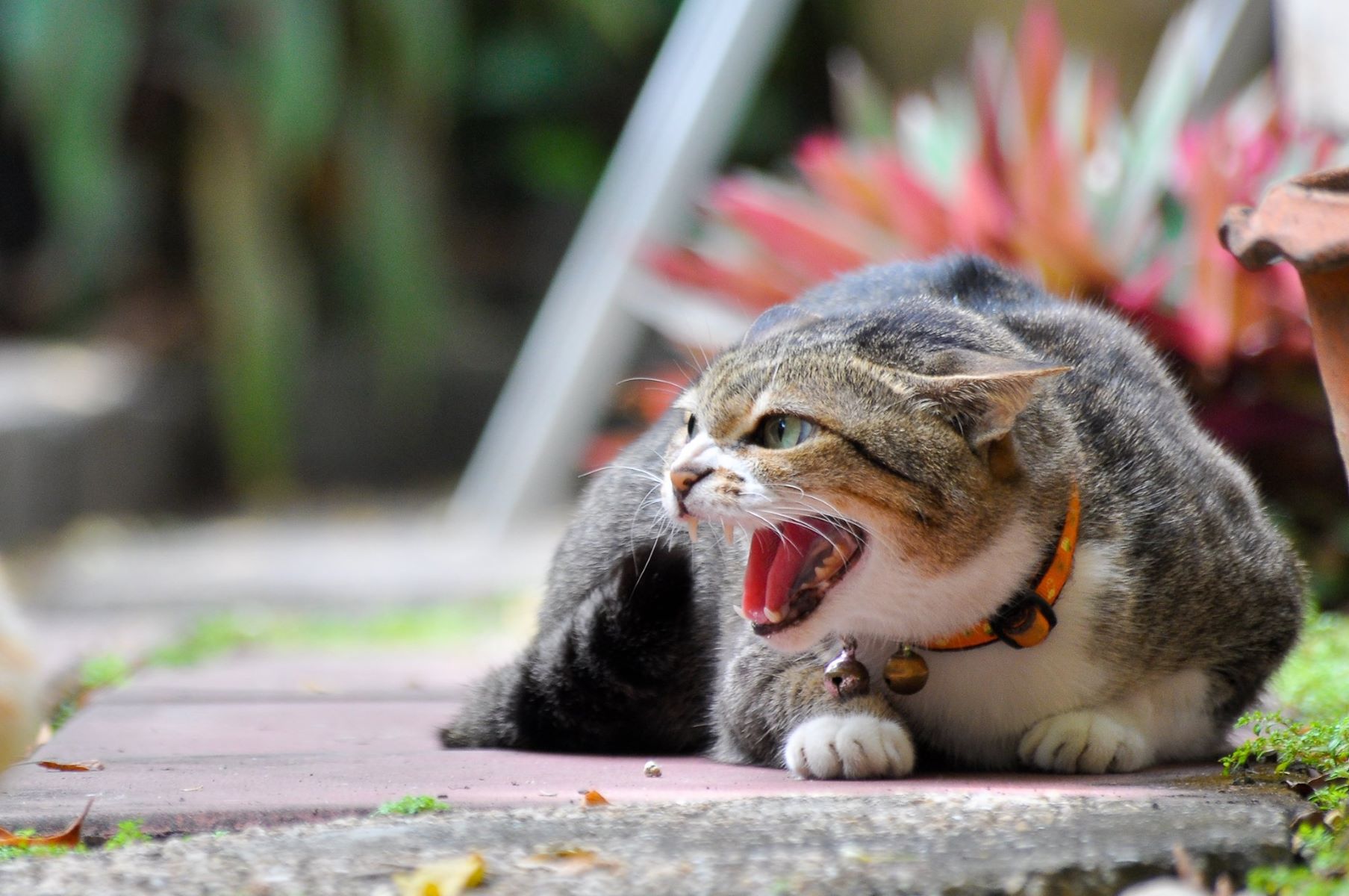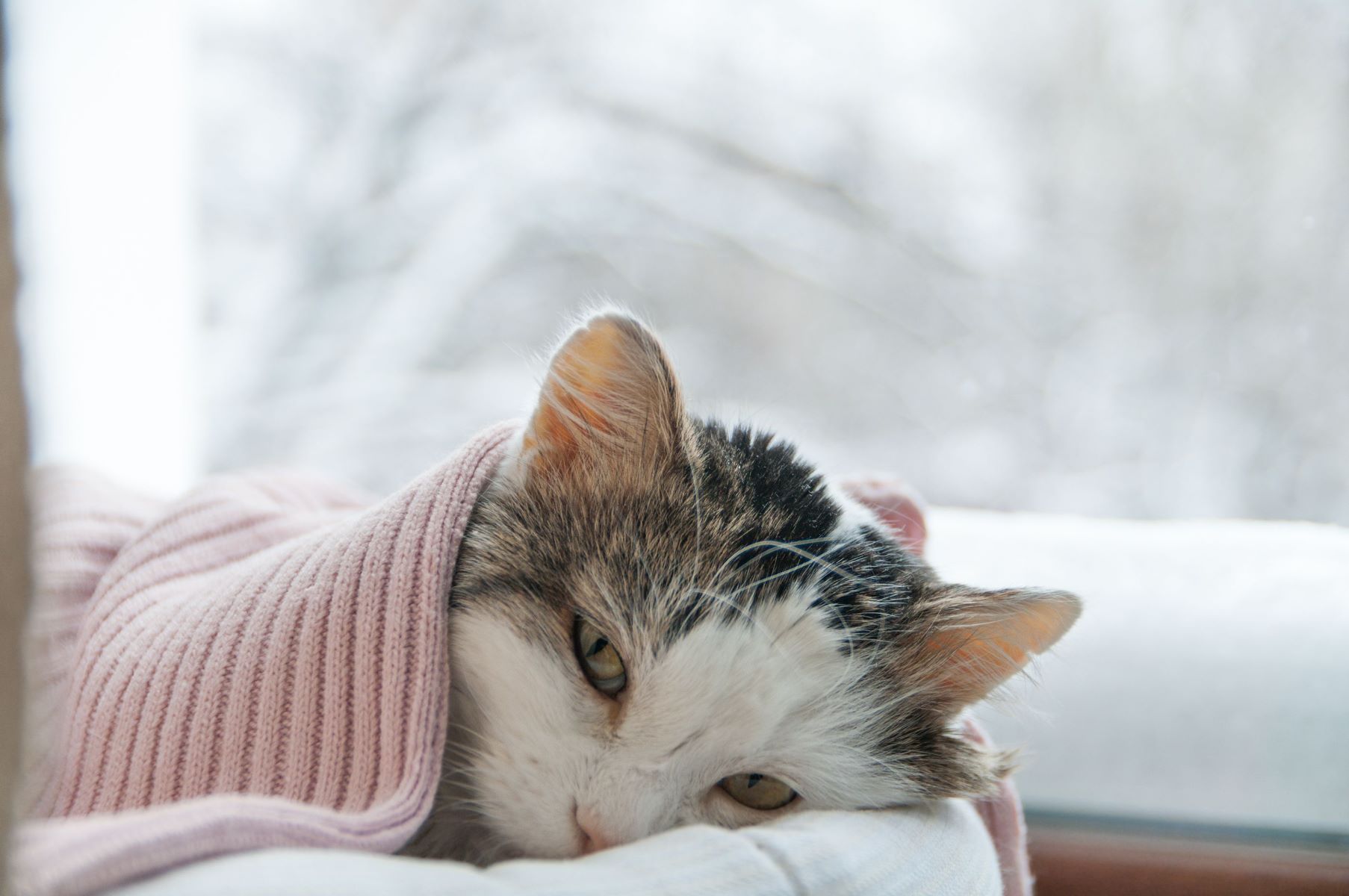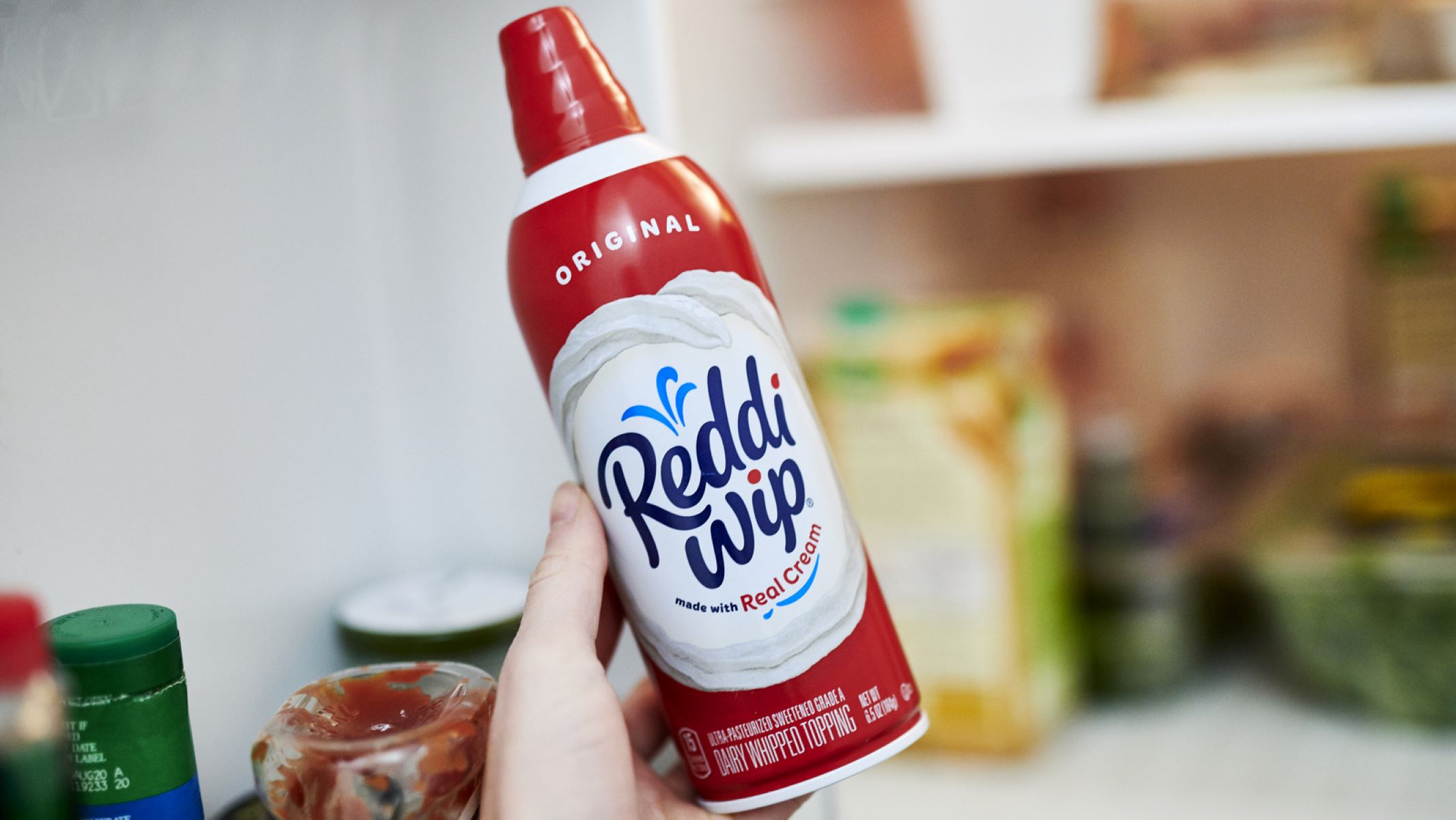Home>Health and Wellness>The Surprising Reason Your Cat Yowls After Every Meal
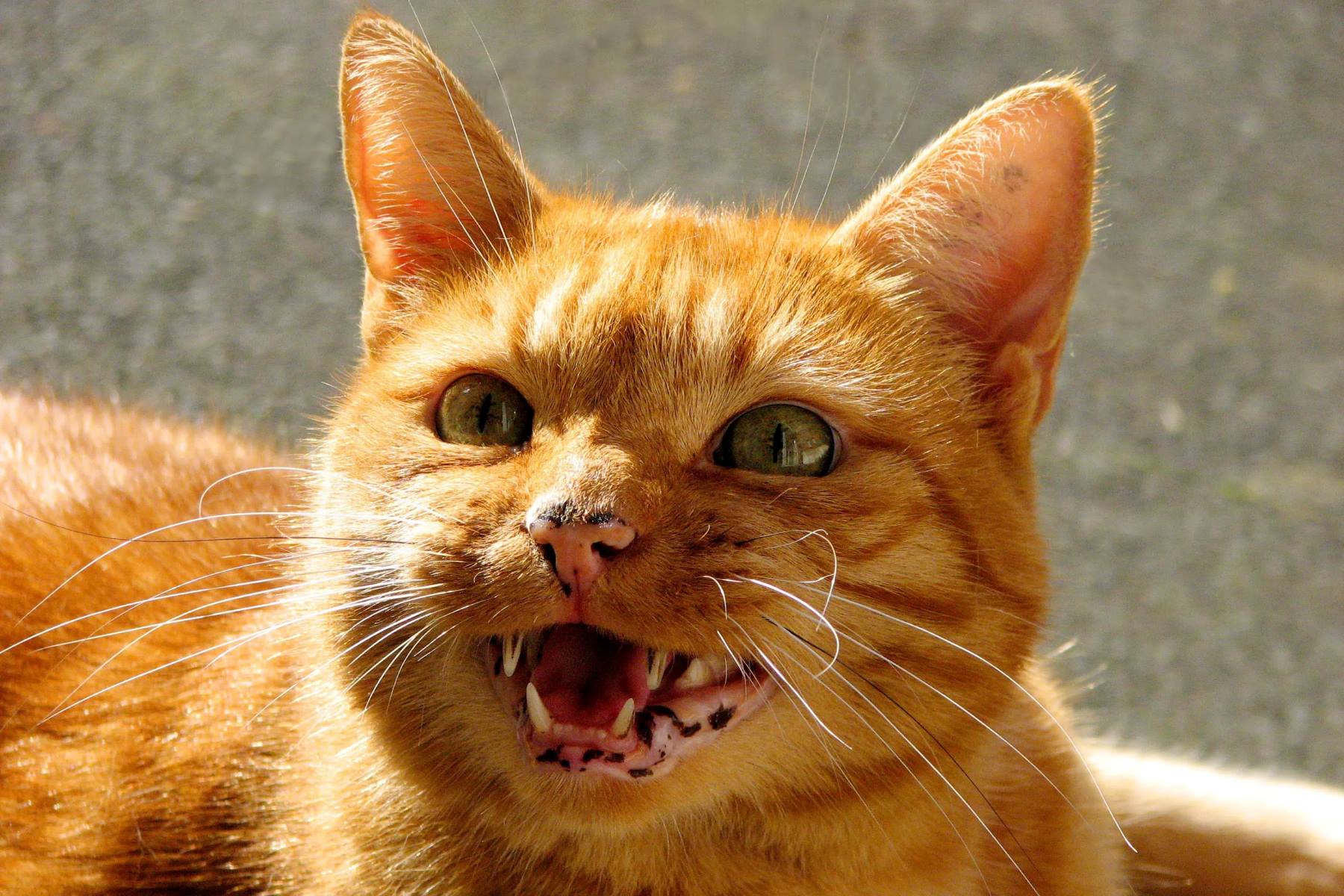

Health and Wellness
The Surprising Reason Your Cat Yowls After Every Meal
Published: January 27, 2024
Discover the surprising reason why your cat yowls after every meal and learn how to improve your feline friend's health and wellness. Unlock the secret to a happier and healthier cat today!
(Many of the links in this article redirect to a specific reviewed product. Your purchase of these products through affiliate links helps to generate commission for Regretless.com, at no extra cost. Learn more)
Table of Contents
Introduction
Have you ever noticed your feline friend letting out a series of loud yowls right after finishing a meal? It's not uncommon for cats to vocalize after eating, and the reasons behind this behavior may surprise you. Understanding why your cat engages in this post-mealtime ritual can provide valuable insights into their well-being and overall health. In this article, we will delve into the intriguing world of cat behavior and explore the relationship between food and vocalization. We'll also discuss potential health issues that could be linked to mealtime yowling and provide practical tips for managing this behavior. So, if you've ever wondered why your cat becomes so chatty after a good meal, read on to uncover the fascinating reasons behind this common feline habit.
Understanding Cat Behavior
Understanding cat behavior is a complex yet intriguing endeavor. Cats are known for their enigmatic nature, and their behaviors often carry subtle but significant meanings. When it comes to mealtime yowling, it's essential to recognize that cats have unique ways of communicating their needs and emotions.
Cats are natural hunters, and their instincts drive many of their behaviors, including how they respond to food. In the wild, after a successful hunt, a cat may vocalize to announce its achievement to other felines or to stake its claim on the captured prey. This instinctual vocalization may carry over into a domestic setting, where a well-fed cat might express satisfaction or communicate with its human companions through post-mealtime yowling.
Furthermore, cats are creatures of routine and habit. They thrive on predictability and may use vocalization as a way to establish and reinforce their mealtime rituals. By vocalizing after a meal, a cat may be signaling contentment, expressing anticipation for the next meal, or simply seeking interaction with their human caregivers. This behavior can be seen as a way for cats to engage in social communication, albeit in their unique feline language.
It's also important to consider individual personality traits and past experiences when interpreting a cat's behavior. Some cats are naturally more vocal than others, and their propensity for post-mealtime yowling may be influenced by their unique personalities. Additionally, a cat's previous experiences with food and mealtime routines can shape their behavior. For example, a cat that has experienced food scarcity in the past may exhibit more vocal behavior around mealtimes as a result of this history.
In essence, understanding cat behavior, particularly in the context of mealtime vocalization, requires a holistic view that considers a cat's instincts, routines, personality, and past experiences. By recognizing the multifaceted nature of feline behavior, we can gain deeper insights into our furry companions' unique ways of expressing themselves.
Understanding cat behavior is a fascinating journey that allows us to appreciate the depth and complexity of our feline friends' communication and emotional expression. By delving into the intricacies of their behavior, we can forge stronger bonds with our cats and provide them with the care and understanding they need to thrive in our homes.
The Relationship Between Food and Vocalization
The relationship between food and vocalization in cats is a fascinating aspect of feline behavior. Cats' vocalization after meals can be attributed to various factors, shedding light on their instincts, communication, and emotional responses to food consumption.
Instinctual Communication
In the wild, a successful hunt often culminates in vocalization as a means of communication among felines. After securing a meal, cats may vocalize to announce their accomplishment or to establish their claim on the captured prey. This instinctual behavior is deeply ingrained in their nature and can manifest in domestic settings, where cats may vocalize after consuming their meals. This post-meal vocalization can be seen as a way for cats to express satisfaction or communicate their fulfillment, mirroring their wild instincts.
Social Interaction and Routine
Cats are creatures of habit, finding comfort and security in predictable routines. Mealtime vocalization may serve as a means for cats to engage in social communication with their human caregivers. By vocalizing after a meal, cats may seek attention, interaction, or acknowledgment, reinforcing their mealtime rituals. Additionally, this behavior can be a way for cats to express anticipation for the next meal, further emphasizing the significance of routine in their lives.
Emotional Expression
The relationship between food and vocalization also encompasses cats' emotional responses to mealtime. Post-meal vocalization can be a manifestation of contentment, signaling a sense of satisfaction and well-being after consuming a meal. Furthermore, cats may use vocalization to convey their emotional state, expressing happiness, comfort, or a desire for connection with their human companions. This emotional dimension adds depth to the vocalization behavior, highlighting the multifaceted nature of cats' responses to food consumption.
In summary, the relationship between food and vocalization in cats is a complex interplay of instinctual communication, social interaction, and emotional expression. By understanding the nuanced reasons behind this behavior, cat owners can gain valuable insights into their feline companions' needs, preferences, and emotional well-being. Recognizing the significance of mealtime vocalization allows us to deepen our understanding of cats' unique ways of communicating and fosters stronger bonds between humans and their feline friends.
Potential Health Issues
Mealtime yowling in cats, while often attributed to behavioral and instinctual factors, can also serve as a potential indicator of underlying health issues. As responsible pet owners, it's crucial to be attentive to any changes in our feline companions' behavior, including vocalization patterns, as these changes may signal health concerns that require attention.
One common health issue associated with mealtime yowling is dental pain or discomfort. Cats, like humans, can experience dental problems such as periodontal disease, tooth decay, or oral injuries. These issues can make eating a painful experience for cats, leading to vocalization after meals as a way of expressing their discomfort. Additionally, older cats may suffer from dental issues, further exacerbating their mealtime vocalization due to age-related dental conditions.
Gastrointestinal problems can also contribute to mealtime vocalization in cats. Conditions such as gastritis, inflammatory bowel disease, or food sensitivities can cause discomfort or pain during or after eating, prompting cats to vocalize as a response to their physical distress. It's essential to monitor your cat's eating habits and digestion, as any signs of gastrointestinal issues should be promptly addressed by a veterinarian.
Furthermore, hyperthyroidism, a common endocrine disorder in older cats, can lead to increased appetite and excessive vocalization, particularly after meals. This condition, caused by an overactive thyroid gland, can manifest as heightened hunger and restlessness in cats, often accompanied by vocal behavior. Identifying and managing hyperthyroidism is crucial for maintaining the overall health and well-being of affected cats.
In some cases, mealtime vocalization may be linked to underlying psychological or cognitive issues in cats. Feline cognitive dysfunction, akin to dementia in humans, can cause confusion, anxiety, and changes in behavior, including vocalization patterns. Cats experiencing cognitive decline may exhibit increased vocalization around mealtimes, signaling their distress or disorientation. Understanding the potential cognitive aspects of mealtime vocalization is essential for providing appropriate support and care for aging feline companions.
It's important to note that while mealtime yowling can be associated with various health issues, it's not inherently indicative of a specific condition. However, consistent or escalating vocalization after meals should prompt pet owners to seek guidance from a veterinarian to rule out any underlying health concerns. By closely monitoring our cats' mealtime behaviors and seeking timely veterinary care, we can ensure their physical and emotional well-being, fostering a nurturing and supportive environment for our beloved feline friends.
Tips for Managing Mealtime Yowling
Understanding and addressing mealtime yowling in cats requires a thoughtful and proactive approach. By implementing practical strategies and creating a supportive mealtime environment, pet owners can effectively manage and minimize this behavior while promoting their cats' well-being.
Establish Consistent Feeding Schedule
Maintaining a regular feeding schedule can help reduce mealtime yowling by providing cats with a sense of predictability and routine. Consistency in meal times can alleviate anxiety and anticipation, leading to a more settled post-meal behavior.
Provide Enrichment and Interactive Feeders
Incorporating interactive feeders, puzzle toys, or food-dispensing devices can engage cats during mealtime, diverting their focus from vocalization. These enrichment tools stimulate their natural hunting instincts and mental agility, creating a positive and fulfilling mealtime experience.
Offer Post-Meal Distractions
After feeding, engage your cat in play or interactive activities to shift their attention away from vocalization. Play sessions or grooming activities can help redirect their energy and provide a rewarding outlet, reinforcing positive behaviors post-meal.
Monitor Portion Sizes and Nutritional Needs
Ensuring that your cat's dietary requirements are met can contribute to a more content post-meal demeanor. Adequate portion sizes and a balanced diet tailored to your cat's age, weight, and health status can promote satiety and reduce the likelihood of excessive vocalization.
Address Potential Health Concerns
If mealtime yowling persists or intensifies, it's crucial to consult a veterinarian to rule out any underlying health issues. Dental problems, gastrointestinal discomfort, or endocrine disorders can contribute to vocalization after meals, and timely intervention is essential for addressing these concerns.
Create a Calm Mealtime Environment
Minimize potential stressors during mealtime by providing a quiet and peaceful feeding area for your cat. Avoid disruptions or loud noises that may contribute to heightened anxiety or vocalization, allowing your cat to enjoy their meals in a serene environment.
Positive Reinforcement and Reward-Based Training
Using positive reinforcement techniques, such as offering treats or verbal praise for calm post-meal behavior, can encourage desirable mealtime habits. Consistent and gentle reinforcement can help shape your cat's response to meals, fostering a more tranquil post-meal atmosphere.
By implementing these tips and strategies, cat owners can effectively manage mealtime yowling while promoting a harmonious and positive mealtime experience for their feline companions. Understanding the underlying factors contributing to this behavior and taking proactive steps to address them can contribute to a more peaceful and enjoyable mealtime routine for both cats and their caregivers.
Conclusion
Understanding the intricacies of mealtime yowling in cats unveils a captivating blend of instinctual behavior, social communication, and potential health implications. As cat owners, recognizing the multifaceted nature of this behavior empowers us to provide attentive and holistic care for our feline companions.
The post-meal vocalization observed in cats is a testament to their innate instincts, rooted in their ancestral hunting and social communication patterns. By vocalizing after meals, cats may express contentment, anticipation, or a desire for interaction, reflecting their deeply ingrained behaviors and emotional responses to food consumption.
Moreover, the relationship between food and vocalization in cats extends beyond behavioral nuances, encompassing potential health issues that warrant consideration. Dental discomfort, gastrointestinal problems, endocrine disorders, and cognitive changes can manifest through mealtime yowling, serving as subtle indicators of underlying health concerns. Vigilance and proactive veterinary care are essential for addressing these potential health issues and ensuring the well-being of our feline companions.
In managing mealtime yowling, creating a nurturing mealtime environment, addressing nutritional needs, and monitoring for potential health concerns are pivotal. By establishing consistent feeding schedules, providing enrichment, and offering post-meal distractions, cat owners can cultivate a positive and tranquil mealtime experience for their cats while mitigating excessive vocalization.
Ultimately, the journey of understanding and managing mealtime yowling in cats is a testament to the deep bond between humans and their feline counterparts. By delving into the nuances of this behavior and responding with empathy and proactive care, we can strengthen the connection with our cats and provide them with the support and understanding they need to thrive in our homes.
In conclusion, the enigmatic world of mealtime yowling in cats invites us to explore the rich tapestry of feline behavior, communication, and well-being. Through attentive observation, informed interventions, and a deep appreciation for our cats' unique ways, we can create a harmonious and fulfilling mealtime experience that celebrates the intricate nature of our beloved feline companions.
